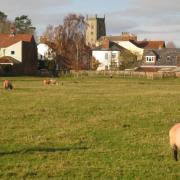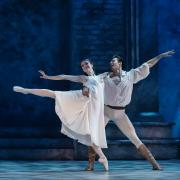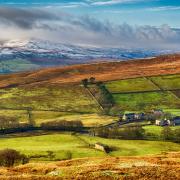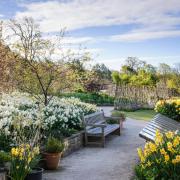Ben Crick is not your typical conductor and classically trained cellist. He’s very – how shall we put it? – northern.


Chatting over a pint-sized mug of coffee at Leeds Station, the flat vowels and down to earth charm of the Huddersfield-born 35 year old certainly add Yorkshire grit to the rarefied world of classical music.
Ben’s mother was a primary school teacher and his father worked for the council. His mates played rugby, and that was his dream too, until he picked up a cello at the age five.
‘It was serendipity,’ he said, referring to when a visitor came into the school and asked who’d like to try out the instrument. His parents were amateur musicians, so there was a lot of music around.
‘To this day I think orchestral music is the most beautiful music in the world. I believe the art form can speak to everyone. I lecture at university and quite a lot of the students have classical music on their iPods, but they’re not going to concert halls.’
Ben is on a mission to change that.
‘I had a professional orchestra playing a Mozart symphony outside Sainsbury’s over there,’ he said, waving to the store in Leeds railway station. ‘When these great symphonies were first written, it was part of the social scene. And there’s a risk we are estranged from that. It’s on a pedestal, but I want to integrate it so it’s normal.’
That doesn’t mean dumbing down though: ‘I don’t care if you have bright green hair if you play Rachmaninov. We can make classical music accessible without editing great works down to 15 per cent of their full length or having sublime arias sung by singers with a modicum of celebrity who can’t sing in the original keys.’
Ben is a founder member of the Skipton Building Society Camerata, which began ten years ago, and works to bring music to rural areas. The Camerata is joining a host of talent to form the newly revived Harrogate Festival Orchestra.
‘There’s a huge presence in Manchester and Gateshead but there’s a lot of country in between,’ he explained. ‘From this first concert at Harrogate, which I’m sure will be a big success, we can take it to rural venues where provision is limited and create a vibrant artistic musical hub. This gig is the first step in that journey.’
The gig in question is a key part of this year’s Harrogate International Festival, which celebrates its 50th anniversary next year. Harrogate Festival Orchestra played at the very first event in 1966, so the revival is an occasion worth celebrating.
Ben is clearly in awe of the festival’s impressive legacy. It famously gave the likes of Julian Lloyd Webber and Lesley Garret a platform before they found fame.
‘It’s fantastic, giving that much work to artists and to a community is great and it’s still going strong and growing. Long may that continue.’
Ben lives with his partner, an opera singer, and his four-year-old son in rural Skipton. ‘We’re posh neighbours from hell,’ he jokes. ‘We could do with our four year old being tone deaf and getting a proper job. But getting up in the morning and making music, I can’t imagine ‘owt else.’
His love of Yorkshire stopped him from the usual brain drain to London.
‘There’s Yorkshire and not Yorkshire and that essentially covers the universe,’ he laughs. ‘Despite a few London-based job offers I wanted to make something here, where I have much more artistic freedom, can follow up new artistic commissions and invest in new music.’
Harrogate Festival Orchestra features top professionals from across the north. It also stars international cellist Raphael Wallfisch.
‘He’s a big name,’ said Ben. ‘I met him 18 months ago. I turned the pages when he played with Peter Donohoe, so I’ve gone from his page turner to his conductor in 12 months. He’s inspirational. He’s 60, I’m 35, so it’s amazing I’m conducting him. I grew up learning from his recordings, and all of a sudden I’m waving a stick at him telling him how quick to play.’
He strongly believes that music enriches lives and should be available to all.
‘Accessible art is important,’ he said. ‘There’d be less anti-social behaviour and everyone would be moved to a higher plain. Maybe I’m idealistic, but one of the gauges on which you should judge society is by how it treats the arts. Art isn’t necessary for basic existence but for a spiritual and happy life, it’s vital.’
He’s also enthralled by the lives of the great composers: ‘Schubert was dead by my age, but wrote great masterpieces and, just as Shakespeare was drama for the masses, Mozart was hummed by barrow boys.
‘In the 20th century a dichotomy came into play: pop music captured the mass market whilst increased atonality and abstraction in the classical world alienated the art form from the majority of the populous.
“If I have a mantra, it’s classical music in its original form is accessible to all. Just enjoy it. That will do.’ n
Harrogate Festival Orchestra will be delivering the festival finale at 8pm on Saturday July 26th at the Royal Hall. For tickets, visit harrogateinternational festivals.com or call the box office on 01423 562303.



























